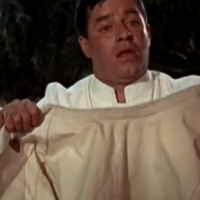hose leading the charge for single-payer health care claim to enjoy wide support among voters.
In 2016, they put that claim to the test in Colorado, asking voters to amend the state constitution to create ColoradoCare, a single-payer bureaucracy designed to “administer a coordinated payment system for health care services and control the per capita cost of health care.”
In January, just 50 percent of voters said they intended to oppose the measure. By November, 79 percent of voters opposed it—and rejected it at the ballot box.
The more voters learned about the plan, the less they liked it.
The ColoradoCare campaign sought to deflect criticism by providing few details about the plan. It wrote the proposed amendment in the vaguest possible language. Fortunately, it still had to provide some specifics outlining the plan’s legal structure—and when it did, support plummeted.
ColoradoCare would have contracted with providers to purchase health care services for state residents. Under the law, no licensed health care provider would have been able to require patients to make copayments, or any other payments, for medical devices or services without ColoradoCare approval.
As the only entity able to legally pay for health services, ColoradoCare would have set prices for every health care service in Colorado.
Thanks to Obamacare, almost a quarter of Colorado’s population was already on Medicaid by 2016. Hospitals and physicians had long campaigned for increases in Medicaid reimbursements, so many Coloradans knew that Colorado Medicaid’s single-payer plan paid less for care than the private sector. They had been repeatedly told that low reimbursements made it difficult for Medicaid patients to get the care they needed. As ColoradoCare would have been a political entity, opponents explained why its reimbursements would mimic Medicaid’s.
Questions like “How quickly will underpaid physicians leave the state for greener pastures, or simply leave medicine altogether?” were common. ColoradoCare’s proponents assured audiences that this could never happen.
But opponents pointed to Colorado Medicaid’s existing shortage of specialists. They also pointed to Great Britain, noting that a third of its National Health Service Accident & Emergency doctors had left the country due to the understaffing and overwork prevalent in that single-payer system.
Though supporters of ColoradoCare said it would provide excellent health care, voters could see that the amendment’s actual language directed the state to “control the per capita cost of health care.”
Voters already harbored doubts about government’s commitment to quality health care. The Department of Veterans Affairs scandals were in full swing. News reports detailed patient deaths, hidden waiting lists, and incompetent staff. Many people knew others who had been denied care in Canada and Britain. Even they were surprised when opponents showed how extensive the denials really were.
ColoradoCare opponents also detailed why outlawing private care would make it impossible to monitor the quality of care. Without private care, there would be nothing to compare public care to.
Read the full story from The Daily Signal
Want more BFT? Leave us a voicemail on our page or follow us on Twitter @BFT_Podcast and Facebook @BluntForceTruthPodcast. We want to hear from you! There’s no better place to get the #BluntForceTruth.







